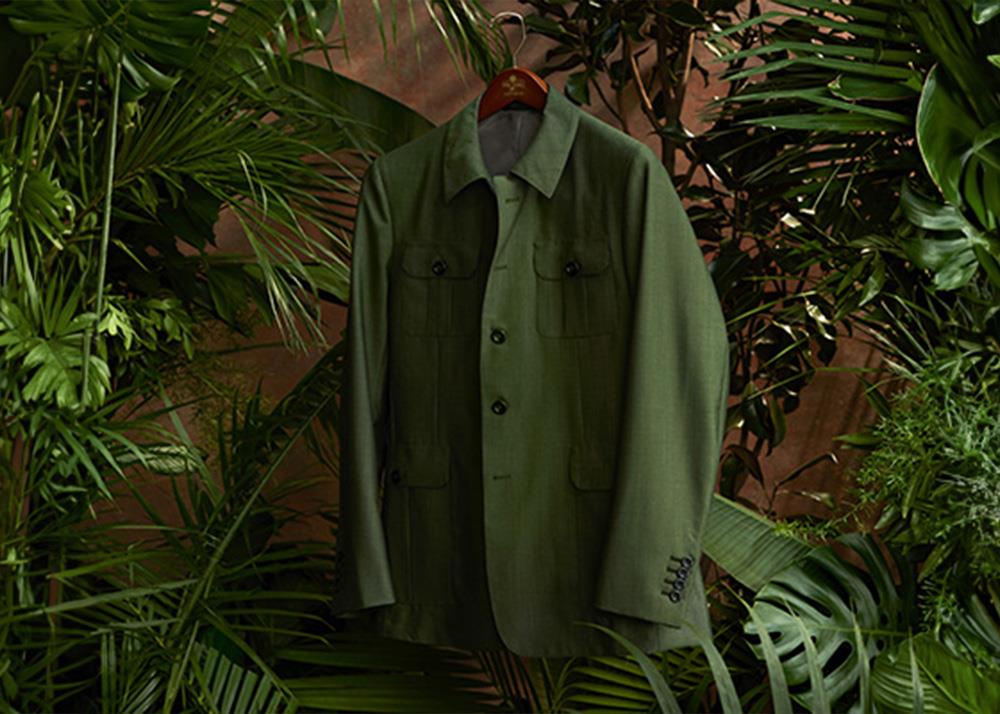Remain Ahead of the Contour by Checking Out Ingenious Fashion Patterns
In an industry as vibrant as style, remaining in advance entails more than just complying with existing trends-- it demands an expedition of innovation. Smart textiles, for circumstances, are changing garments right into useful work of arts, while 3D printing is transforming style processes with its personalized, waste-reducing capabilities. As sustainability becomes a keystone, innovations like environment-friendly materials and circular fashion methods are improving environmental obligation - Cape Town Sustainable Fashion. In addition, the convergence of technology and style declares a brand-new age of customer engagement. How, then, can these emerging fads redefine the future of style, and what ramifications do they hold for brands seeking to grow in this evolving landscape?

Accepting Smart Textiles
Over the last few years, the apparel industry has actually seen a transformative shift with the combination of smart fabrics, an innovative technology that mixes innovation with material. This advancement stands for not only a combination of visual appeals and performance yet additionally a substantial leap in the direction of sustainability and customization in vogue. Smart textiles, likewise known as e-textiles, installed advanced electronic devices such as sensors and conductive threads within the textile, making it possible for garments to connect with the atmosphere or the user.
These textiles are developed to check physical criteria, such as heart rate or body temperature, offering real-time health analytics. Beyond health applications, smart textiles are likewise being utilized for adaptive clothes, which can change color or pattern in reaction to environmental stimuli, hence offering a dynamic fashion experience.
In addition, the growth of energy-harvesting fabrics that produce power from activity or sunshine is leading the means for self-sufficient wearable technology. This advancement is appealing to ecologically conscious consumers and developers aiming to minimize the eco-friendly footprint of fashion. As research study and advancement in this field advance, wise textiles are anticipated to end up being significantly prevalent, reshaping the landscape of modern-day fashion with their multifunctional abilities.
The Increase of 3D Printing
Changing the production landscape, 3D printing has actually emerged as a game-changer in the style market. This cutting-edge modern technology has enabled designers to press the limits of creativity, generating detailed and customized garments that were formerly unthinkable. By leveraging digital style and additive manufacturing, 3D printing facilitates the production of complicated geometries and patterns, enabling developers to explore brand-new appearances and frameworks.
A remarkable benefit of 3D printing in vogue is its capacity to generate on-demand, reducing waste and lowering stock requirements. This performance not just optimizes production processes but also permits rapid prototyping, allowing developers to bring their visions to life in a much shorter duration. In addition, 3D printing sustains modification to a level unequaled by typical methods, supplying customized fits and unique designs customized to specific customer choices.
The surge of 3D printing has likewise democratized style, making it easily accessible to arising developers that can currently make top quality pieces without substantial monetary investment in standard manufacturing infrastructure. As technology remains to advance, the fashion business is positioned to harness the full potential of 3D printing, exploring brand-new products and strategies that will unquestionably redefine try this out exactly how fashion is developed and generated.
Sustainable Style Developments
As the fashion business faces journalism need for environmental responsibility, sustainable fashion innovations have arised at the forefront of transformative change. The expanding recognition of ecological influence has sustained a change towards even more eco-conscious practices and materials. Developers and brands are now prioritizing sustainability, including methods that minimize waste and decrease carbon impacts.
One considerable advancement is the increase of round fashion, which highlights recycling and upcycling to prolong the lifecycle of garments. This technique not only lowers waste but additionally urges consumers to adopt a more conscious approach to clothes usage.
Another innovation lies in the adoption of innovative dyeing methods that utilize all-natural dyes or waterless processes, thus minimizing the go to the website vast quantities of water and chemicals typically utilized in fabric dyeing. Moreover, improvements in biotechnology have actually brought about the development of lab-grown leather and textiles, supplying cruelty-free and eco-friendly choices to traditional materials. Via these introducing efforts, the apparel industry is making meaningful strides in the direction of a more lasting future.

Tech-Integrated Apparel
Tech-integrated apparel stands for a cutting-edge fusion of style and modern technology, improving how individuals engage with their apparel. This cutting-edge domain is noted by the addition of smart textiles and embedded digital elements, enhancing both performance and aesthetic charm. From physical fitness trackers installed in sports apparel to heated jackets controlled through smartphone applications, tech-integrated garments uses consumers extraordinary benefit and flexibility.
Introducing brands are driving this pattern, concentrating on developing garments that react to environmental stimulations or individual commands. For circumstances, some garments can transform color or pattern in reaction to temperature level shifts, while others integrate biometric sensors to monitor wellness metrics like heart rate or tension degrees. The seamless combination of innovation right into fabrics likewise includes ecological sustainability, with efforts to establish self-cleaning textiles or garments that get used to climate condition, hence lessening the requirement for numerous layers.
In addition, the arrival of wearable modern technology is not just limited to apparel yet includes devices like watches and eyewear, additional broadening the range of tech-integrated style. As the sector continues to introduce, the capacity for personalization and customization in clothing expands, supplying consumers special, tech-enhanced style experiences that deal with their specific requirements and preferences.
Future of Virtual Style
Over the last few years, the future of online style has become a transformative pressure within the industry, leveraging advancements in digital innovation to redefine how fashion is produced, experienced, and eaten. By incorporating increased truth (AR), digital reality (VIRTUAL REALITY), and 3D style devices, developers can now craft interactive and immersive experiences that transcend conventional style boundaries. Virtual fashion allows for the creation of garments that exist entirely in electronic environments, supplying endless possibilities for advancement without the restrictions of physical manufacturing.
This electronic change not just presents possibilities for creative expression but likewise addresses sustainability issues fundamental in traditional fashion practices. Cape Town Sustainable Fashion. By eliminating the need for physical sources, digital style her response decreases waste and decreases carbon impacts. Moreover, the rise of online fashion lines up with the raising consumer demand for individualized and special experiences, as online garments can be tailored and customized to individual preferences with ease

Final Thought
The fashion market's future lies in the integration of sustainable practices and innovative technologies. Digital fashion is poised to redefine customer interactions.
In current years, the fashion sector has seen a transformative change with the assimilation of wise fabrics, a sophisticated advancement that blends technology with material.As the style sector grapples with the pushing requirement for environmental responsibility, lasting style innovations have actually arised at the forefront of transformative change.In recent years, the future of online style has arised as a transformative pressure within the market, leveraging innovations in digital innovation to redefine exactly how style is created, experienced, and eaten. The increase of virtual fashion aligns with the enhancing customer need for special and tailored experiences, as virtual garments can be personalized and tailored to specific preferences with simplicity.
The style industry's future lies in the combination of ingenious technologies and sustainable methods.